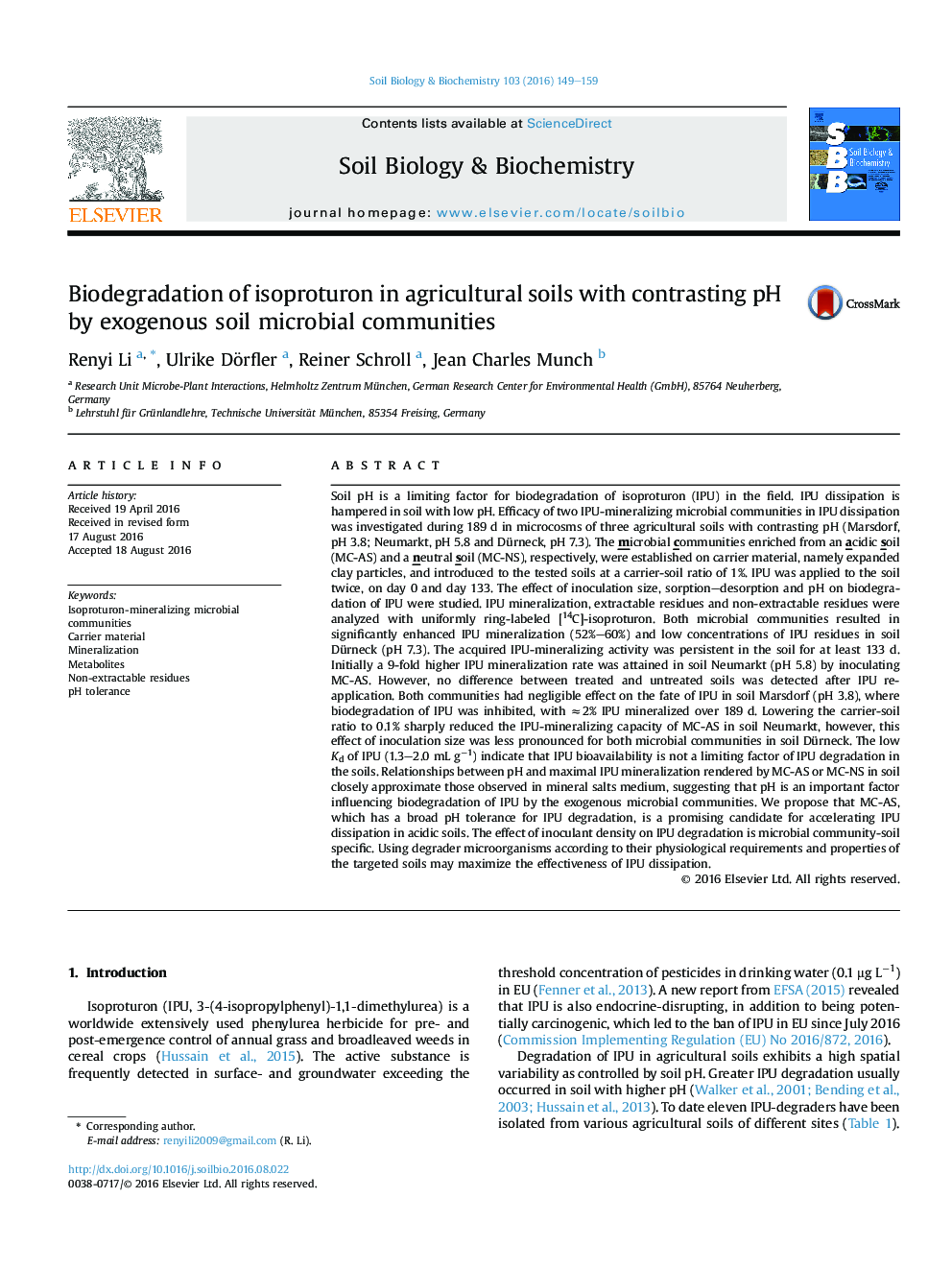| Article ID | Journal | Published Year | Pages | File Type |
|---|---|---|---|---|
| 8363219 | Soil Biology and Biochemistry | 2016 | 11 Pages |
Abstract
Soil pH is a limiting factor for biodegradation of isoproturon (IPU) in the field. IPU dissipation is hampered in soil with low pH. Efficacy of two IPU-mineralizing microbial communities in IPU dissipation was investigated during 189Â d in microcosms of three agricultural soils with contrasting pH (Marsdorf, pH 3.8; Neumarkt, pH 5.8 and Dürneck, pH 7.3). The microbial communities enriched from an acidic soil (MC-AS) and a neutral soil (MC-NS), respectively, were established on carrier material, namely expanded clay particles, and introduced to the tested soils at a carrier-soil ratio of 1%. IPU was applied to the soil twice, on day 0 and day 133. The effect of inoculation size, sorption-desorption and pH on biodegradation of IPU were studied. IPU mineralization, extractable residues and non-extractable residues were analyzed with uniformly ring-labeled [14C]-isoproturon. Both microbial communities resulted in significantly enhanced IPU mineralization (52%-60%) and low concentrations of IPU residues in soil Dürneck (pH 7.3). The acquired IPU-mineralizing activity was persistent in the soil for at least 133Â d. Initially a 9-fold higher IPU mineralization rate was attained in soil Neumarkt (pH 5.8) by inoculating MC-AS. However, no difference between treated and untreated soils was detected after IPU re-application. Both communities had negligible effect on the fate of IPU in soil Marsdorf (pH 3.8), where biodegradation of IPU was inhibited, with â2% IPU mineralized over 189Â d. Lowering the carrier-soil ratio to 0.1% sharply reduced the IPU-mineralizing capacity of MC-AS in soil Neumarkt, however, this effect of inoculation size was less pronounced for both microbial communities in soil Dürneck. The low Kd of IPU (1.3-2.0Â mLÂ gâ1) indicate that IPU bioavailability is not a limiting factor of IPU degradation in the soils. Relationships between pH and maximal IPU mineralization rendered by MC-AS or MC-NS in soil closely approximate those observed in mineral salts medium, suggesting that pH is an important factor influencing biodegradation of IPU by the exogenous microbial communities. We propose that MC-AS, which has a broad pH tolerance for IPU degradation, is a promising candidate for accelerating IPU dissipation in acidic soils. The effect of inoculant density on IPU degradation is microbial community-soil specific. Using degrader microorganisms according to their physiological requirements and properties of the targeted soils may maximize the effectiveness of IPU dissipation.
Related Topics
Life Sciences
Agricultural and Biological Sciences
Soil Science
Authors
Renyi Li, Ulrike Dörfler, Reiner Schroll, Jean Charles Munch,
